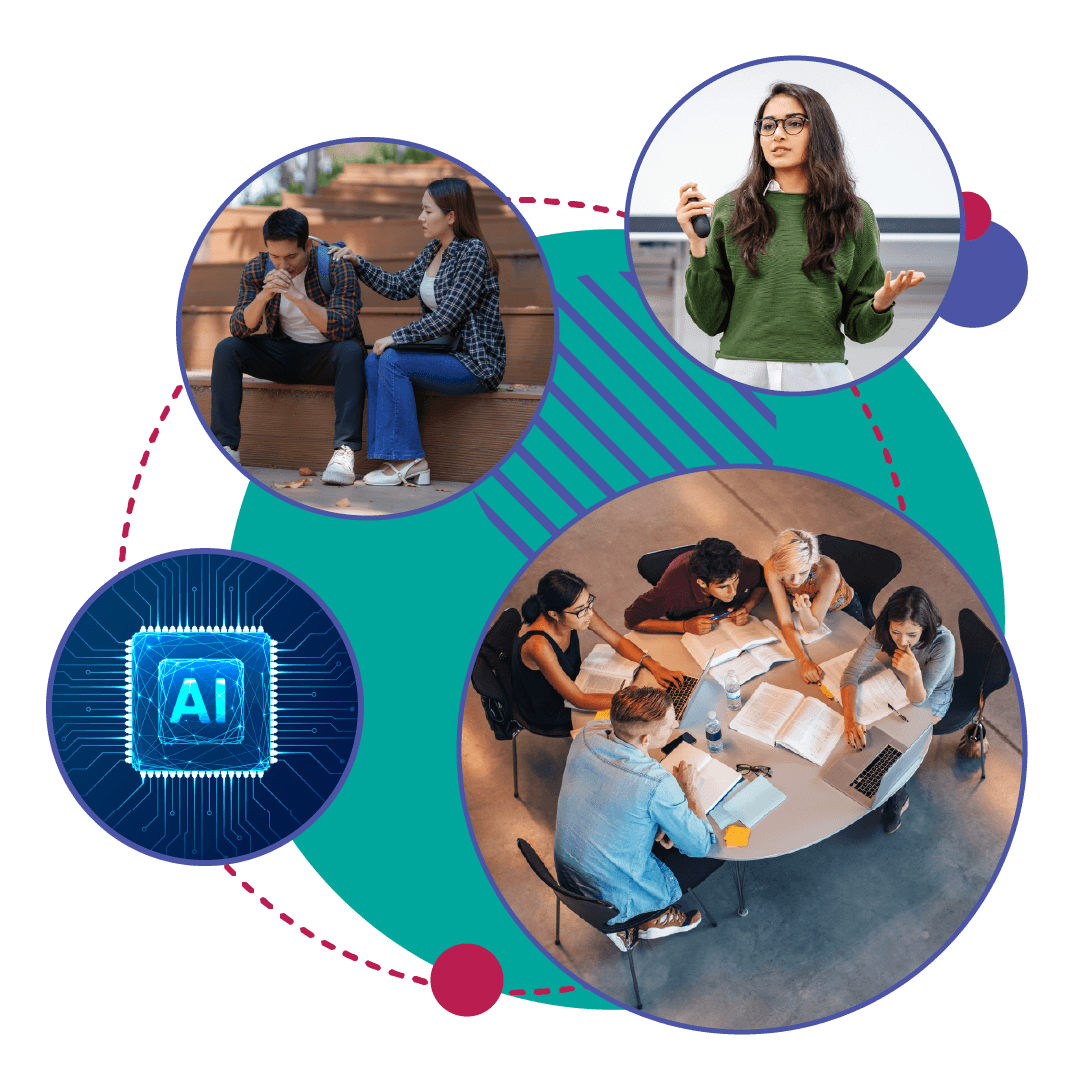Future-Proofing Students: Professional Skills in the Age of AI
As AI transforms the workforce, many technical skills that once guaranteed career success can now be replicated in seconds. What sets students apart today—and in the future—are professional or durable skills: collaboration, communication, empathy, motivation, and resilience.

Why Professional Skills Matter More Than Ever
People skills drive lasting career success
75% of long-term job success comes from strong people skills rather than technical expertise.
Employers are noticing
Over 25% of executives say they won’t hire recent grads due to a lack of professional skills.
Gen-Z gap
COVID disrupted internships and in-person collaboration, leaving many students underprepared.
See why professional skills drive 75% of long-term career success

The Skills That Define Future-Ready Graduates
Professional or durable skills aren’t optional—they’re essential. Among them are eight core human skills every student needs:
- Empathy
- Teamwork
- Communication
- Motivation
- Resilience
- Ethical Reasoning
- Problem Solving
- Self-Awareness
These competencies don’t expire with technology—they grow stronger over time, helping graduates adapt, lead, and thrive in an AI-driven world.
Future-proof your students with skills AI can’t replace
How Institutions Can Respond
- Assess early: Tools like Situational Judgment Tests (SJTs), including Acuity Insights’ Casper, measure professional skills at admissions and help identify development needs.
- Embed throughout curricula: Go beyond one-off workshops; integrate human skills into core coursework, experiential learning, and assessment.
- Prepare for an AI-augmented world: Pair AI literacy with non-academic skill development through partnerships, simulations, and reflective practices.
Key Takeaway
Technical skills may open the door, but professional skills are what keep graduates in the room. Institutions that prioritize both human and technical skills will produce adaptable, competitive, and workforce-ready students.
Don’t just graduate students—prepare future-ready leaders.

Get access to the Professional Skills Report
Future-Proofing Students: Professional Skills in the Age of AI
Submit the form to access the report.


